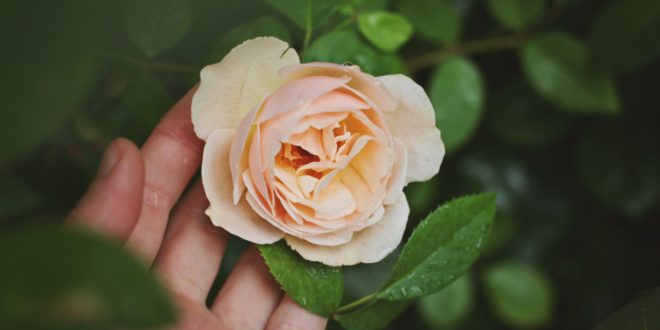It is probably an understatement to say we haven’t been having the best of summers in New Zealand. The wet, windy and cooler conditions don’t make life easy for anyone growing roses and if yours are anything like mine, they won’t be looking the best with disease running rampant, flowers being damaged with the rain and bits broken off in the wind. Don’t despair; there are a few things you can do to get your roses looking good again.
Perhaps the most important thing you can do is what rosarians call a summer trim as has been used for many years to get a good display of blooms for autumn rose shows. It is also a technique used to get roses to flower if you are hosting a special event in your garden. Given local conditions are always different; I suggest you consult with experts in your local rose society for specific advice for your area.
To summer trim, you must cut back all stems back just like you were de-heading while trying to retain as much foliage as possible. You can also stagger the trimming of a bush by trimming half the stems one day and the rest a few days later – this is particularly useful if you want roses in bloom for a specific event as it does increase the odds something will be in flower.
The secret to summer trimming is making sure the plants have enough food and water after trimming has occurred so they will put on good growth. If it does turn dry, make sure the plants get a good application of water at least once a week – one good soaking is preferable to several lighter applications and try and keep it off the foliage. Once you have summer trimmed, give your roses a good application of fertiliser to get them going again into new growth and blooms.
Hopefully, with a bit of help from mother nature, you will be rewarded with lots of beautiful blooms later in March and April. Although not as big in size, the autumn blooms have much better colour and substance than those in the spring.
If summer trimming is not for you, then just continue to dead-head as usual, keep the water on and give your roses another application of fertiliser but don’t do this any later than the end of February as any new growth needs to harden off before winter arrives.
Whether you summer trim or just carry on as usual, you will probably have to spray to keep disease problems at bay with plenty of options available at your local garden centre or hardware store.
Despite the recent weather woes, New Zealand actually has one of the best climates for growing roses in the world in that we don’t get the extremes of temperature and that there is usually enough moisture to keep things growing. So don’t despair, next season will be better!
 In the Rose Garden for February
In the Rose Garden for February
- Water your roses if it dries out
- Start to prepare areas for plantings in winter by digging over and adding compost.
- Order rose plants for winter delivery especially any new and popular varieties as they can sell out quickly. Also, any varieties you want as a standard as these can be popular as well.
- If you are into budding onto rootstock, February is a good month to do it.
By Hayden Foulds
Hayden also serves as Deputy Chairman of the World Federation of Rose Societies Rose Trials Committee amongst other rose endeavors.









Join the Discussion
Type out your comment here:
You must be logged in to post a comment.